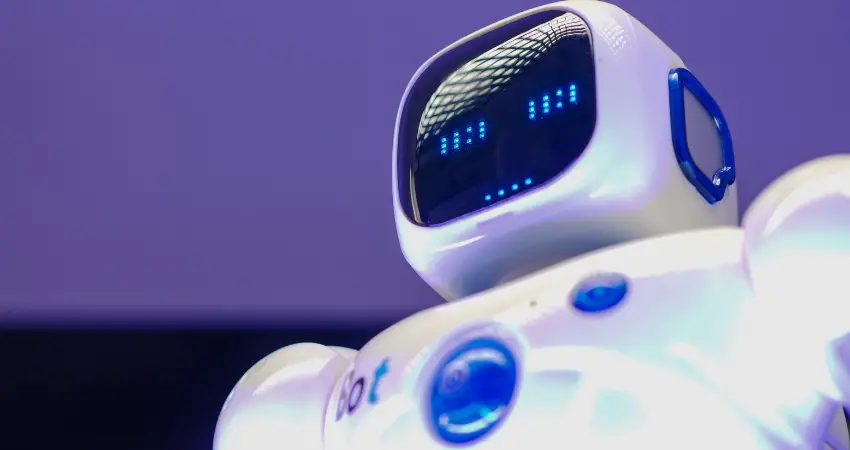Understanding the Global Nursing Shortage
The Crisis
The world is facing a serious nursing shortage. According to the International Council of Nurses, 13 million new nurses will be needed globally in the coming years. In 2019, the shortage reached 30.6 million jobs, a figure that has undoubtedly been impacted by the pandemic.
Impact on Healthcare
The shortage of nurses puts immense pressure on healthcare systems. Nurses play a vital role in patient care, and a lack of adequate staffing can lead to burnout, reduced quality of care, and increased healthcare costs.
The Role of Artificial Intelligence (AI) in Nursing
Accenture’s Proposal
Accenture, a prominent technology services company, has proposed a solution that involves utilizing AI-enabled robots to assist nurses.
The Functionality of AI-Enabled Robots
These robots could help with various tasks during a nurse’s 12-hour shift, including:
- Helping patients with daily routines
- Reminding them to take medications
- Answering basic medical questions
Time Allocation
Currently, nurses spend an estimated 21% of their time on direct patient care, while the rest is dedicated to administrative tasks. AI could reshape this balance, allowing nurses to focus more on patient care.
Related Articles
Artificial intelligence in nursing
Virtual nursing assistants
Examples of artificial intelligence in nursing
Innovations in Clinical Tasks
New Technologies
Technologies like ambient listening and generative AI can improve efficiency in nursing work. Research indicates that 30% of administrative tasks can be automated or reassigned.
Impact on Patient Care
These innovations would free up more time for nurses to spend on patient care, thus enhancing the overall patient experience and potentially improving health outcomes.
AI in Other Healthcare Areas
Operating Room Management
AI is being used to manage operating room schedules effectively, even increasing surgical cases by 7% for one large healthcare provider.
Predicting Staffing Needs
Machine learning models that predict staffing needs help ensure that there are enough healthcare professionals available when needed.
Artificial Intelligence (AI) and the Global Nursing Shortage
The Future of AI in Healthcare
AI’s role in healthcare is expanding, and its potential to alleviate the global nursing shortage is becoming clear. Through the automation of various administrative tasks, AI allows nurses to focus more on what they do best: caring for patients.

Robots in Nursing: A Nurse’s Perspective on AI and Patient Care
Welcoming Robots for Clerical Work
The Daily Administrative Burden
As a nurse, a significant portion of my day involves administrative work. From charting patient information to managing schedules, these tasks, although necessary, take time away from direct patient care.
AI and Clerical Tasks
The proposal to introduce AI-enabled robots for clerical tasks is appealing. Automation in areas like documentation, scheduling, and data management could allow nurses like me to focus more on our primary responsibility – caring for patients.
Hesitation About Personal Care
The Personal Touch in Nursing
Nursing is not merely a profession but a vocation. The personal connection we establish with patients through activities like feeding and bathing is essential. It’s not just about the physical act but the empathy, understanding, and human connection that goes along with it.
Robots and Personal Care
The idea of robots assisting in feeding and bathing patients brings a sense of discomfort. While they might be programmed to perform these tasks efficiently, can they offer a reassuring touch or a kind word? The loss of these human interactions is concerning.
Balancing Efficiency and Compassion
Finding the Right Role for AI
There is no doubt that AI has immense potential in healthcare. However, finding the right balance is crucial. Using AI for administrative tasks can free up valuable time, but personal care must remain in human hands.
Collaboration, Not Replacement
Robots should be seen as collaborators rather than replacements. They can handle repetitive tasks, allowing nurses to dedicate more time to complex, empathetic care that only humans can provide.
Artificial Intelligence (AI) and the Global Nursing Shortage
The integration of AI in nursing is an exciting prospect with the potential to reshape the healthcare landscape. However, as a nurse, I believe that careful consideration must be given to how and where robots are utilized.
The Human Element
While embracing technological advancements, we must not lose sight of the human element that defines nursing. Robots can assist us, but they cannot replace the compassion, empathy, and personal connection that nurses offer.
Final Thoughts
The integration of AI in healthcare is more than just a technological advancement. It’s a step towards a more efficient, responsive healthcare system that prioritizes patient care. As technology continues to evolve, the opportunities for AI to support the healthcare industry are boundless.

